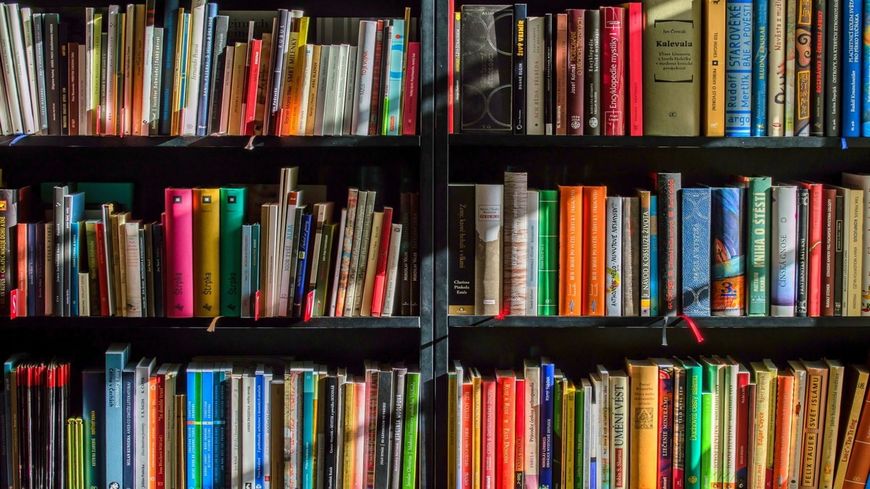How to Read Smarter, Retain More Information, and Learn Faster
Reading gives you superpowers. It just does. I don’t know the exact science behind it but reading books opens the world to you. It expands the “adjacent possible,” the process of opening new pathways in your brain to help you connect ideas.
Reading is responsible for me multiplying my income five times over, finding a career I love, and making connections with other smart people (who also tend to love to read.)
The verdict is in, and it can be summed up by the prolific reader Charlie Munger:
“In my whole life, I have known no wise people (over a broad subject matter area) who didn’t read all the time — none, zero.”
Of course, there are exceptions to this, but if you’re the type of person to point out exceptions to rules for pleasure, you’re annoying.
Before we get into my personal favorite reading comprehension strategies, let’s start by talking about the idea that ties them all together.
Don’t be This Person
Some people treat reading like a sport.
You know these people. They talk about how many books they’ve read. It seems like they’re reading just to increase that number.
People like this don’t read to learn, they read to signal virtue. They read toappear smart, instead of reading to be smart.
The point of reading more is…whatever you want it to be. It’s a means to often unknown ends. You’re just learning, having fun, expanding your brain with new material across wide subjects.
I started reading because my life sucked and some smart people said reading could help me fix that. The fact that I didn’t know exactly what I was trying to achieve and didn’t use books as a status symbol helped me read the right way.
Follow Naval Ravikant’s advice:
Following your genuine intellectual curiosity is a better foundation for a career than following whatever is making money right now.
If you read to follow your genuine curiosity, you’ll reach that end goal you’re looking for without knowing what it is beforehand.
If you read so you can tell people how many books you read, you’ll have nothing more than empty status.
Now that we’ve gotten that out of the way, let me share my unusual reading comprehension strategies with you.
Don’t Try so Hard
The fact you’re reading a post about reading comprehension strategies tells me you care a little bit too much about comprehending what you read in the first place.
James Altucher says you only retain about two percent of what you read. That sounds about right. This is why you read many books within the same subject and also read books in other subjects.
You’ll notice many authors use similar stories and information. Eventually, you’ll see the same anecdotes and insights so often, they’ll stick.
Don’t try to speed read. If you read slowly, read slowly. Books are meant to be enjoyed. Trying to speed read puts you in the same mindset as someone trying to learn enough to pass a test and then forget all the information.
Being less goal-oriented about your reading habits actually makes reading more enjoyable and helps you retain the information better.
I’m a reformed book junkie. I used to beat myself up when I didn’t read enough (dumb). Now, I look at every book as an exploration and I don’t put too much pressure on myself to get something out of it.
Ironically, the information sticks much better when you’re not obsessed with the reading comprehension strategies du jour.
Never, Ever, Ever, Ever Do This
I remember buying a highly touted, must-read, New York Times bestselling book that I won’t name. About 50 pages in, I found it very hard to finish.
Not because the material was too dense. I’ve read dense books that were hard to understand but were also interesting.
No, this book was flat out boring and didn’t seem useful. Part of me felt obligated to finish the book. This was, again, at a time where I was in book junkie mode. When you’re in this book reading cult, you feel like you have to increase your notch count at all costs. You don’t.
I put the book down and never read it again after about 50 pages. I had the realization that reading books for the sake of reading them is useless. Now, if a book doesn’t grab me pretty quickly, I’ll just stop reading it.
Life is too short to read bad books. Reading comprehension is also about what you don’t read. Filling your mind with junk makes it harder to understand golden wisdom because bad books can actually lower your intelligence.
Understand What a Book Actually Is
Books are portals into people’s brains.
See, instead of just focusing on the content of the book, you can comprehend the material even better by focusing on the person who wrote it and the strategies they used to write it.
Think about their motivation for writing the book, the experiences that shaped their worldview, why they choose to write in the style they write.
Looking at these deeper layers of meaning increases your reading comprehension because the deeper meaning is the point of the book in the first place. Facts and data are nice, but the underlying meaning is everything. Since the author is the vessel for the message, it’s wise to focus on them.
I’m reading Ham on Rye by Charles Bukowski. It’s a semi-autobiographical novel about the upbringing and life of the average frustrated Joe Schmo nobody.
You can feel the ethos of quiet desperation in the blunt and terse tone of the prose. Here’s a guy who lived a life of banality that was somehow interesting at the same time.
When you think about the author finding meaning in “nothing” you can then understanding how all lives, even “pitiful” ones, contain deep insights about human nature — some beautiful and some awful.
I think about his mindstate and behavior while writing the book — drunk as hell or hungover but still able to put words on the page. I think about how much it meant to him to get these words down regardless of how he felt about himself (he wrote for decades before being discovered).
That shows the power of passion works for even the worst of us. He’s been quoted as saying “Find what you love and let it kill you.” And he did just that. Knowing that was his aim was just as important as the content itself.
Get This Out of the Way
Go ahead and read your fair share of business and pop psychology books. Most people who read non-fiction books go through this phase.
How is reading the front-facing titles of the business section at Barnes and Noble a reading comprehension strategy?
The knowledge from those books creates a layer of understanding. If you want to read more advanced books on psychology, Thinking Fast and Slow is a good primer. Before you jump into the wide catalog of philosophy, The Meditations is a great gateway drug.
These books are easy to read and help you get in the habit of reading. If there’s any benefit of reading the same books everyone else does, it’s the fact it gets you in the game. The goal is to start reading, period.
And being able to say you’ve read the popular business book at a dinner party is a good enough incentive to help you build that habit.
In my post about how to avoid becoming a self-help junkie, I talked about how powerful it was to bathe myself in business, self-help, and pop psychology books. They didn’t give me profound wisdom, but they did give me the motivation to read better books and helped me push through difficult situations.
Reading popular business books isn’t all for naught. Get it out of the way and then develop your own unique library.
Whenever You Find a Great Book, Do This
I make the same recommendation every time someone asks for a book recommendation — the Incerto by Nassim Taleb — a volume of books about risk and uncertainty.
I could easily just re-read those five books in rotation without reading anything else. There are certain books you need to read more than once, more than twice, even more than three times to understand.
When you read these books, you learn something new every single time. Popular business books don’t have this effect — once you read them, you “get the joke.”
Reading comprehension isn’t just about comprehending a single book, it’s about refining your library down to the books that help you comprehend the world, human nature, and reality itself.
You’ve heard of the Pareto principle before. The 80/20 rule. This works for books too. Most books you’ll read once. Some you can’t help but read over and over again. Not just for philosophical insights, either. I even have some self-help titles that are so motivational they must be re-read.
Here’s my list if you’re wondering which books stick with me forever:
- Poor Charlie’s Alamanck
- Zero to One
- Fooled by Randomness
- Antifragile
- The Black Swan
- The 48 Laws of Power
- The Laws of Human Nature
- Rich Dad Poor Dad (simple language, but profound insights)
- Relentless: From Good to Great to Unstoppable
- The 10x Rule
- How to Win Friends and Influence People
- Influence: The Psychology of Persuasion
Choose Whatever Form of This You Like
I’ve tried many different note-taking techniques.
I’ve tried the notecard system made popular by Robert Greene and Ryan Holiday. You highlight important passages in books, let the book sit for a week, and then write down the passages that stick with you on note cards for further reference. This is helpful for writers who want to cite their work later.
I do this from time to time, but it can become tedious and maybe unnecessary for those who aren’t writers. At this point, I only use this technique if I’m in the process of doing research for a new book.
There’s marginalia, where you scribble notes and mark up the pages of your book with questions and added insights.
You can follow the example of people like Derek Sivers and Nat Eliason who type up their book notes on a blog. This is something I’m considering, actually.
The moral of the story is this — note-taking works, but you have to find a system that works for you. If none of the systems work, just don’t take notes. You don’t have to.
Become One of the Rare Few Who Actually Does This
I’ve used this example often. You could read 10,000 books about riding a bike, but you won’t be able to ride a bike until you…ride it.
Many, many, many people turn reading from a useful exercise into mental masturbation. If you don’t use or implement the insights from books you’ve read, you’ve comprehended nothing, even if you’ve memorized every concept.
Notice that few of my “reading comprehension strategies” involved trying to comprehend books in an academic way. You’re not trying to become a scholar. You’re trying to improve and add flavor to your life by reading.
If you read all day, but never turn the knowledge into something tangible, change your perception and behavior, or improve your life through the wisdom you’ve received, you’ve missed the point entirely.
The Bottom Line
There are a bazillion articles about reading more books, reading comprehension strategies, best book lists, etc. Good. This is a dead horse worth beating. People need to read more, period.
You need to read more, period.
But you don’t have to become a book nerd who adds the total number of books read to your Twitter Bio.
Read to explore, read for knowledge, read for fun, and yes, read for comprehension.
But the ultimate reading comprehension strategy I can give you? Just start reading and never stop.
This article originally appeared here.

.jpg)



